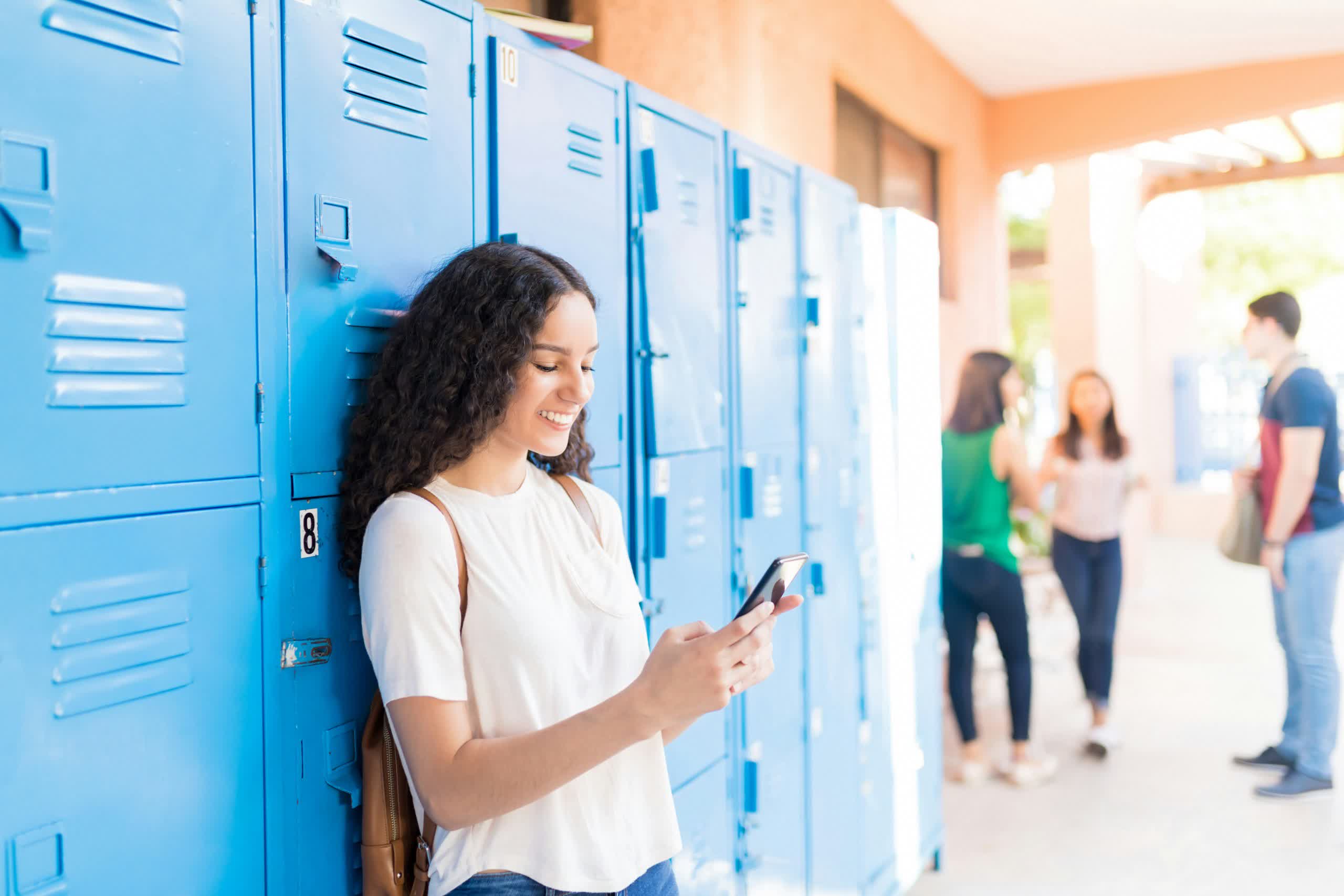The findings come from the Pew Research Center, which surveyed 5,110 US adults. The results show that 68% of respondents supported a ban on middle and high school students using phones in the classroom, while 24% opposed the idea and 8% were unsure.
I dunno in America, school shootings are common and therefore I think students should always have access to their phones
Depressingly that is kind of valid.
It could probably be in a box or something by the teacher. Then they could hand them out during a lock down.
I think the old etiquette rules are the same as they were when our grandparents were in school.
Making a phone call during class is extremely rude, but students have a legitimate need to make phone calls outside of class, which is why high schools used to have pay phones.
The issue is kids aren’t making phone calls in class. They’re on social media. They’re listening to music. It’s usually not obvious and disruptive to others, but still impacting their ability to focus and learn. Banning them outright causes kids to be sneaky and resentful, but allowing them can be detrimental, especially with the impacts on mental health. If you collect them before class (I’ve seen teachers use shoe holders hanging on the door) kids will bring in an old phone and turn in that. If you use the locked bags, same deal. If you scramble the service so they phones are unusable then you can run into issues in a real emergency.
I’ve seen this again and again, but haven’t cell phones been banned in classrooms for as long as there have been (mainstream affordable) phones?
I have lots of memories of “blind texting” on a T9 because I had to hide it from the teacher lol.
Also, I generally support bans in the classroom, but just let them have their phones during lunch, there’s no instruction during lunch ffs
The phones weren’t designed to get you addicted to them back then. I am a teacher, and if I had to start every class by convincing all student who didn’t put their phones in the phone-locker to do it, then I would have no time left for teaching. I have pivoted to making classroom assignments that students have to complete using their phones instead, and it’s working wonders.
The phones weren’t designed to get you addicted to them back then.
Umm, yea, I was not a very social person and I was still on my phone for most of my classes lol and I was also still in school for “The Great Switch” when everyone just had smartphones after summer break (including myself)
You cannot honestly say the addictive pull of social media and games today is the same as it was back then. That’s like saying weed and heroin are equally addictive.
Banned in classrooms? Nah. Use while you’re supposed to be paying attention or working sure. But straight up just banned not in most places. And we’re talking about kids and teenagers so good luck enforcing not using their phones when they shouldn’t, which is why an outright ban would probably work better.
As a former educator, I can say good luck enforcing anti-phone rules whether you want to or not.
I wasn’t a cop and I didn’t want to be one. I had no license (nor did I seek one) to forcibly seize and confiscate phones. Sure, some brainrot addicts would waste away on the damn things but apart from verbal attempts to get their dwindling attention, that was the beginning and the end of my authority there if I wanted to keep my job.
Phones are the way a lot of students learn and focus nowadays.
They shouldn’t be taken away, lest their ability to do those things drop.
This is the rule at my kids school. It looks fine on paper, but in practice there is no respect for sometimes rules for many adoledcents.
That wont work. Kids are not going to stop using their phone if they have it on them. They need to remove nearly all the screens from the classroom and let these kids learn how to pay attention. Its even worse for those of us who have executive dysfunctions.
I’m a teaching assistant at an elementary school where phones are banned until the final bell rings. The kids are completely used to it now, and as a result, they pay much more attention in class. The middle school nearby recently adopted the same policy, and while there was a lot of drama at first, people have adapted, and things are running more smoothly. Since the current elementary students are already familiar with the no-phone rule, I expect that when they move up to middle school, they’ll adjust easily.
In a few years, this policy will likely be widely accepted, but it probably won’t feel totally smooth until these students reach high school.






